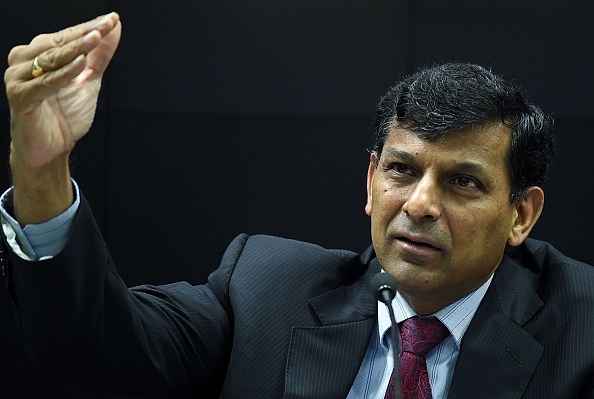Politics
Raghuram Rajan Sees Our Democracy As A “Perpetual Puzzle”. Here’s Why It Isn’t
- Dear Mr Rajan, if you see India in this context, you will realise that Indian democracy is rooted in Hindu thought. No need to be puzzled.

Raghuram Rajan
Raghuram Rajan, former Governor of the Reserve Bank of India and Professor of Finance at the University of the Chicago Booth School of Business, claims he is perplexed why democracy has worked in India when it hasn’t among its neighbours.
Writing for Project Syndicate on “Democracy, inclusion and prosperity”, which was reprinted by Mint newspaper today (30 December), Rajan makes this astonishing statement: “In India, the caste system ensured that entire populations could never be devoted totally to the war effort. So war in India was never as harsh as in China. At the same time, the codes of just behaviour emanating from ancient Indian scripture have historically constrained arbitrary exercise of power by rulers. As a result, India’s governments are rarely autocratic. History is not destiny — but it is influential, and it is a perpetual puzzle why India has taken to democracy, while some of its neighbours with similar historical and cultural pasts have not.” (Italics mine).
One wonders why something that stares you in the face should be so puzzling to an intellectual like Rajan. The reason why India is a democracy and not Pakistan or Bangladesh is precisely because our neighbours chose to abandon Indic (ie, largely Hindu) values of diversity. They chose to make God a zero-sum game, where my acceptance of a God automatically invalidates yours and I am thus obliged to fight you. Both Pakistan and Bangladesh are reaping the whirlwind of jihadism after sowing the seeds of theocracy in their constitutions. Democracy cannot flower in the quicksand of theocratic certainties.
Democracy and pluralism in India flow from our history of Hindu-Buddhist-Jain co-evolution and acceptance of the validity of different paths, where contestations are in the realm of ideas and argumentation. These disputes seldom lead to war and violence. Acceptance of difference is the key to acceptance of democracy in any society. Our neighbours sought certainties in religion, and ended up being undemocratic.
India’s flowering democracy can be a puzzle only to those schooled in Abrahamic logic and academia, where acceptance of one idea must necessarily invalidate another. Binary logic is what leads to conflict and intolerance, and India has never accepted binary logic in the way the west has. Binary logic is very useful and practical when enforcing the rule of law in limited situations (Red means stop, Green means Go, and neither mean you are free to use your own judgment), but it is not a very useful theory to build a pluralistic society on.
Consider the religious development in India, where the birth of new religions seldom led to bloodshed of the kind we saw in the crusades or between Jew, Christian and Muslim. Hinduism was confronted by Buddhism and Jainism, lost traction for centuries, and then returned to favour. Sikhism was a religion that significantly drew from Islam, but it had one of the most peaceful births from Hinduism.
Amartya Sen would like to believe that India got one of its first secular rulers in Akbar, but the reality is the other way round. It is India’s pluralism that gave birth to an Akbar, who started out as an Islamic bigot, but soon realised that maintaining India’s diversity was vital to the longevity of his rule. To perpetuate his rule, he even tried evolving an entirely synthetic religion called Din-e-elahi, which failed to find traction.
Attitudes to difference and diversity determine how well a democracy works. This attitude came to the west only when it formally decided to separate church from state after revolution and reformation and renaissance; it never came to Islam, which rejects this separation. Nor did it come to China, where despotic power was established by centuries of warfare.
Dear Mr Rajan, if you see India in this context, you will realise that Indian democracy is rooted in Hindu thought. No need to be puzzled.
Support Swarajya's 50 Ground Reports Project & Sponsor A Story
Every general election Swarajya does a 50 ground reports project.
Aimed only at serious readers and those who appreciate the nuances of political undercurrents, the project provides a sense of India's electoral landscape. As you know, these reports are produced after considerable investment of travel, time and effort on the ground.
This time too we've kicked off the project in style and have covered over 30 constituencies already. If you're someone who appreciates such work and have enjoyed our coverage please consider sponsoring a ground report for just Rs 2999 to Rs 19,999 - it goes a long way in helping us produce more quality reportage.
You can also back this project by becoming a subscriber for as little as Rs 999 - so do click on this links and choose a plan that suits you and back us.
Click below to contribute.
Latest